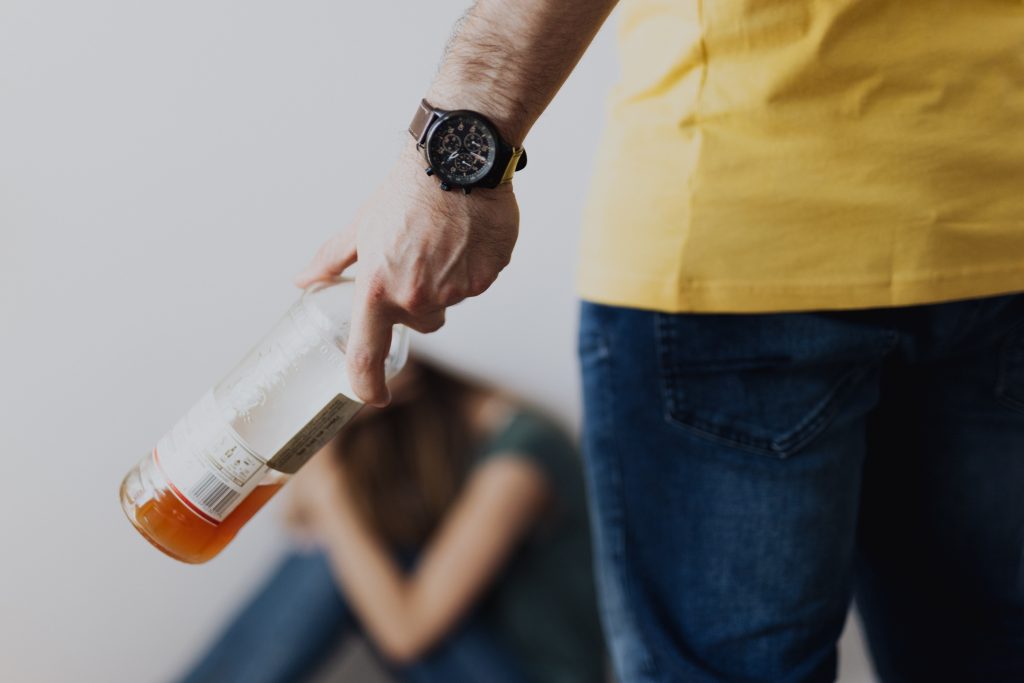Domestic Violence Rising in Hawaiʻi — Hereʻs How to Spot Abuse & Get Help

With the alarming rise in domestic violence cases in Hawaiʻi during the COVID-19 pandemic, the nonprofit Child & Family Service is raising awareness on how to spot signs of domestic abuse, how to prevent tragedies and how to get help.
Friends and family of domestic abuse survivors can provide safety nets and encourage people to escape unsafe situations.
“Domestic violence is all about power,” said Karen Tan, LCSW, President and CEO of Child & Family Service. “The abuser’s behaviors are intended to hurt, manipulate, frighten, intimidate, terrorize, humiliate, blame or injure their victim. When a person uses tactics to control their partner, it creates risk and harm.”
Examples of control include being told who you can talk to, what family members you can see, what you can wear, or even where you can go.
“In our batterers’ groups, we tend to hear the abusers minimize the seriousness of the violence and its effect on the victim,” said Robert Boyack, MSW, Program Administrator at Child & Family Service. “The batterers would blame their violence on stress, or alcohol, or the victim as a trigger. Batterers have a history of assault or abuse and feel that violence can solve problems. They have elaborate excuses for violence or blame the victim for provoking them.”
Many have theorized that the pandemic caused more domestic violence because of the additional stress, however, during the onset of the lockdown, calls to the CFS crisis line decreased by 24%.
“We suspect that survivors of domestic violence did not have the opportunity to find a secure and safe location to make these calls with the abuser being in the home,” Boyack said.
As the state reopened, Boyack noted the number of calls significantly increased.
“Unfortunately, during the lockdowns, we did see an increase in the severity of the injuries sustained from domestic violence, with more calls from the hospitals to our shelters looking for safe havens for survivors,” Boyack said. “This is not about the stress of the lockdown, but about increased access and isolation that the abuser had toward the victim.”
Boyack, who holds a master’s degree in social work, offers tips for family members and friends to help spot some indicators of abuse:
- If someone has an unexplained injury, and they make an excuse for the injury but it seems suspect, or not logical, it may be abuse.
- Changes in life patterns – a person is becoming more reclusive, or routinely starts breaking plans to see you; skips work; does not attend family functions.
- Unseasonable clothing – wearing long sleeves in Hawaiʻi to cover their arms, especially if this is not how the person normally dresses.
“If you are concerned, and see any of these signs, or if your gut is telling you something is wrong, you should ask a question,” Boyack said. “This conversation should be done in a safe and private area. And you should bring up specifics of what you are seeing in terms of the red flags. Note what your concerns are and then just listen. Let the person know they are being heard.”
The Domestic Violence Action Center on Oʻahu also has noted an uptick in domestic violence. About 50,000 contacts were made with clients during the past year, including helping 13,000 survivors to create a safety plan to prepare for danger that they may be facing when their partner becomes abusive.
“These numbers seem startling, and people don’t want to believe that it’s happening in our communities here,” said Nanci Kreidman, Chief Executive Officer at the Domestic Violence Action Center. Kreidman says that there has been a greater concern about clients who are stuck in unsafe situations since the onset of the pandemic.
Resources to Escape an Unsafe Situation:
It is important family and friends of domestic violence victims support the survivor’s choices, because often it may take time for someone to leave an abusive relationship. Friends and family can help by providing a listening ear, and educate the victim of resources available to them. Children & Family Service offers multiple domestic violence shelters statewide that provide a safe haven for those trying to leave an abusive situation.
Visit Childandfamilyservice.org for a list of hotlines and programs for domestic abuse survivors. The shelters are open 24 hours a day for those looking for a safe space. The following domestic violence hotlines also are available:
- Maui, operated by Women Helping Women: 808-579-9581
- Moloka‘i, operated by Moloka‘i Community Service Council: 808-567-6888
- O‘ahu: 808-841-0822
- Kaua‘i, operated by the YWCA Crisis Hotline: 808-245-6362
- West Hawai‘i Island: 808-322-7233
- East Hawai‘i Island: 808-959-8864
- Domestic Violence Action Center on Oahu: 808-531-3771, texting line: 605-956-5680
- National Domestic Violence Hotline 1-800-799-SAFE (7233), 1-800-787-3224 (TTY), Text “START” to 88788
- www.thehotline.org
“When a survivor is truly ready to leave, you want to be there for them,” Boyak said. “That could mean picking them up from the grocery store or a location that they visit often to take them to a safe location where they can make a call.”
The goal is to not revictimize survivors by making comments such as “Why don’t you just leave them?” Boyack stresses the importance of being supportive and letting survivors know that when they are ready to leave, you are there to help. It’s this kind of support that offers hope and increases their chances of getting away from their abuser.
If you know someone who is exhibiting power over their partner, and things may escalate into an aggressive situation, Boyack also works with the batterer’s intervention program, Developing Options to Violence. These free group sessions are offered twice a day; six days a week. Abusers or those seeking support in order to stop the violence, can call 808-532-5100 to learn more.










